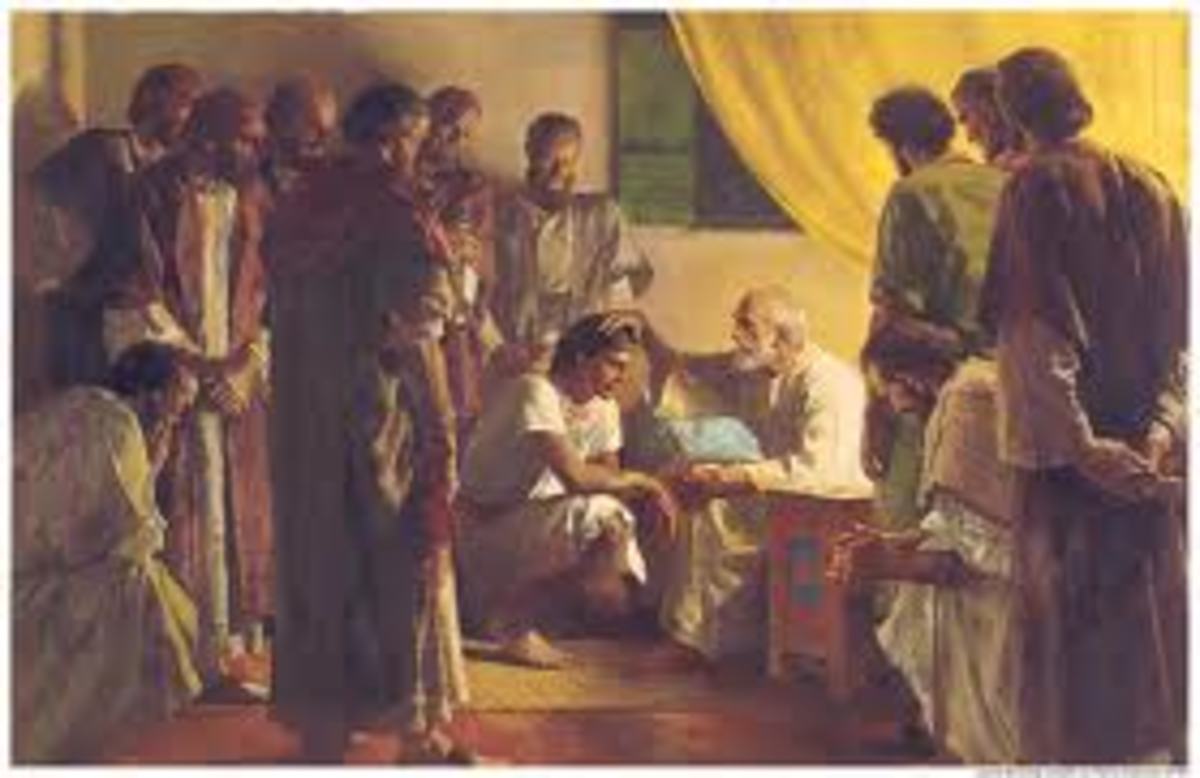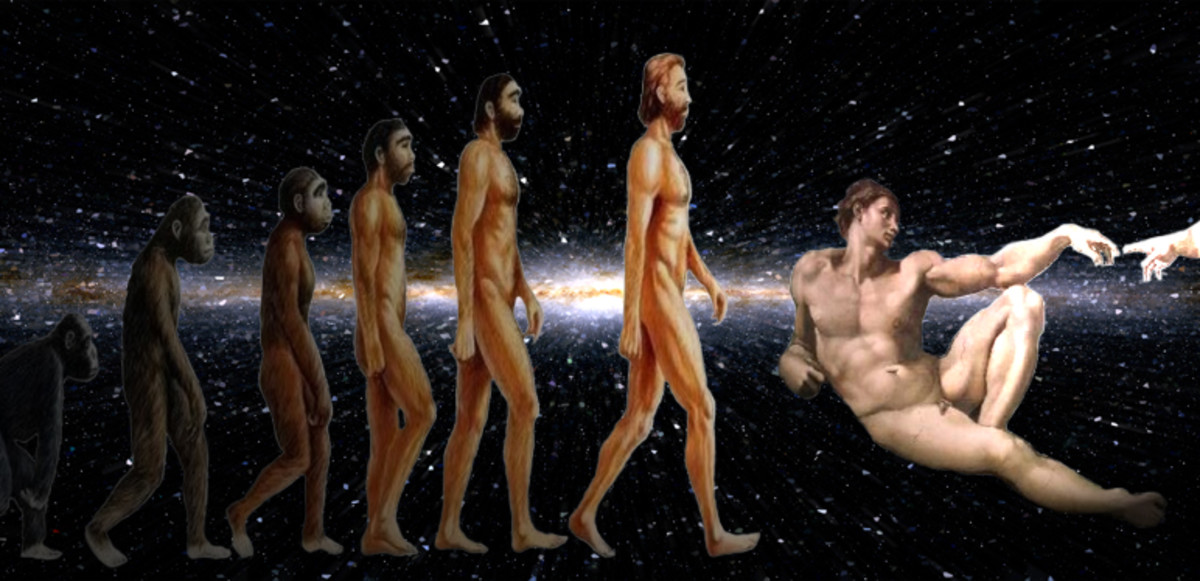Bible: What Does Genesis 37-38 Teach Us About Joseph, Judah, and Tamar?
Joseph's Dreams
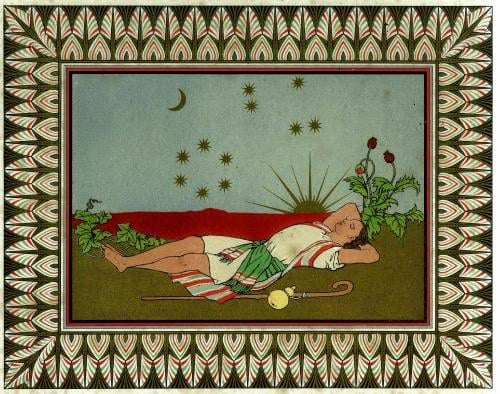
Joseph's "Technicolored Dreamcoat"
The “history of Jacob” (toledoth) continues with a life-altering episode from the life of the patriarch’s favorite son, Joseph.
[Jacob may have been sixty years old—left home at age forty and served Laban for twenty years before Rachel bore Joseph—when Joseph was born.
Therefore, he is about seventy-seven at this stage since Joseph is 17.]
Joseph “tattletales” on his shepherd-brothers—men who happen to hate this “son of Jacob’s old age,” even the one who wore a technicolored tunic (vv. 1-4).
[Verse 1 indicates that this event took place in Canaan, Abraham’s temporary residence.
What connection does this fact have with the current text?]
By telling his brothers his two dreams that highlight his future pre-eminence—the first showing their sheaves bowing down to his (vv. 5-8), and the second symbolically depicting his family as heavenly bodies doing obeisance to him (vv. 9-10)—young Joseph does not improve his relationship with them (vv. 5-10).
For Jacob, however, questions remain (v. 11).
[Joseph’s lack of maturity prevented him from keeping these dreams secret].
The Wise Brother(s)
view quiz statisticsIsrael Identifies Joseph's Tunic
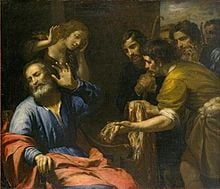
Selling Joseph
Israel sends Joseph from “the valley of Hebron” to spy out the activities of his shepherd-brethren in Shechem (vv. 12-14).
An unnamed man finds young Joseph wandering around in Shechem trying to locate his brothers, and directs him to Dothan where Joseph finally catches up with them (vv. 15-17).
[Dothan is quite a few miles from Shechem.
Why were the sons of Israel so far from where their father sent them?]
When they see Joseph afar off, all of his brothers (except Reuben, who wished to bring him back to Israel) conspire to kill him and throw his body into a pit (vv. 18-21).
As the eldest son, Reuben dissuades the others from following through with this decision; instead of directly murdering their brother, they seize him, steal his tunic, throw him alive into a waterless pit, and afterwards callously sit down to a joyous meal (vv. 22-25a).
At this point, a company of camel-riding Ishmaelite [later called Midianite (v. 28)] traders appears on the horizon, carrying various goods to Egypt (v. 25).
Judah—a brother who possibly desired to save Joseph, but who also apparently had an eye for the shekel—suggests that the brethren sell Joseph to the traders, and not allow him to die in the pit (vv. 26-27).
Joseph’s price—twenty shekels of silver—does not sound like much, but that is what his brothers acquired for him (v. 28).
The text states that Reuben returns to the pit and finds Joseph gone (v. 29).
[Obviously, he was absent when Judah and the others decided to sell Joseph.Where he went, the text does not say].
Terribly grieved and distraught, he complains to his brethren about their foolishness.
In turn, the brothers decide to try to cover up their misdeed by fabricating Joseph’s death, dipping his tunic in goat’s blood (vv. 30-31).
[When Reuben says that Joseph is “no more,” does he mean that he believed him to be dead?
Or does he know that his brothers had sold Joseph to the traders, and now laments that he can do nothing about it?]
The text says that they sent the blood-spattered tunic home for Israel’s inspection, but it also records that they brought it to him with a carefully prepared lying question (v. 32).
[Note that they do not ask Israel if the tunic belonged to their brother Joseph, but they say, “Is it 'your son’s tunic?' ”]
Jacob recognizes Joseph’s tunic, and leaps to the conclusion that a beast had killed his son (v. 33).
[Why did he not question his sons further about how this tragedy occurred?]
After putting on the mean clothing of a near Eastern mourner, Jacob weeps many days for Joseph, lamenting in the presence of his deceitful sons that he will die in that condition (vv. 34-35).
In the meantime, the Midianites have sold Joseph in Egypt to Potiphar, a powerful officer in Pharaoh’s service (v. 36).
A Foolish Decision
view quiz statisticsThe Three Sons of Judah
Genesis 38
Moses interrupts the flow of this Joseph narrative section to recount an incident in Judah’s life.
[Earlier, he had inserted the story of Shechem’s rape of Dinah (chapter 34) between Jacob and Esau’s meeting (chapter 33) and Jacob’s return to Bethel (chapter 35)].
Judah leaves his brothers at the time they sold Joseph into slavery.
Significant time passes during which he marries, has three sons by an unnamed daughter of Shua, a Canaanite, and finds a wife for his firstborn, Er (vv. 1-6).
At this point, God kills Er because the latter is wicked “in the sight of the LORD”; the text does not specify the nature of his wickedness (v. 7).
Judah tells his second-born, Onan, to marry Tamar, Er’s widow, and beget an heir for his brother (v. 8).
Knowing that any child conceived would not be his, Onan “emits” on the ground (v. 9).
For this disobedience, God takes his life also (v. 10).
To prevent Shelah, his remaining son, from possibly suffering the same fate, Judah instructs Tamar to live as a widow in her father’s home until the boy matures (v. 11).
After an unspecified length of time, Judah’s wife dies.
Judah and Tamar
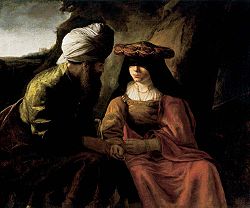
Tamar's Scheme
As a new widower, Judah decides to occupy himself by visiting his sheepshearers in Timnah, accompanied by his friend Hirah (v. 12).
When Tamar learns of Judah’s plan to shear his sheep, she disguises herself and sits by the way to Timnah (vv. 13-14).
Thinking her a harlot and not recognizing her as his daughter-in-law, Judah negotiates with Tamar over the price of her sexual services (vv. 15-16).
He agrees to send her a young goat as payment, and then he gives her his signet ring, his cord, and his staff as a pledge (vv. 17-18).
When Judah later sends the goat by Hirah, he cannot find Tamar, despite inquiring of the men of that place regarding a certain harlot (vv. 19-22).
Rather than risk shame by pursuing his pledge, Judah drops the search (v. 23).
Three months later, when Judah learns that Tamar is pregnant by harlotry, he self-righteously condemns her to death (v. 24).
Producing Judah's pledge (v. 25), Tamar forces him to acknowledge his sin: withholding Shelah from her (v. 26).
In due time she bears twins: Zerah, the first-born (though he was not delivered first), and Perez (“Breach, or Breakthrough”) [vv. 27-30].
[Tamar saw that Shelah was old enough to wed her, but that Judah had not allowed the marriage.
She, therefore, intended to force Judah’s hand by pretending to be a prostitute, conceiving a child through his illicit act with her, and thus shaming him before the community].
© 2013 glynch1




